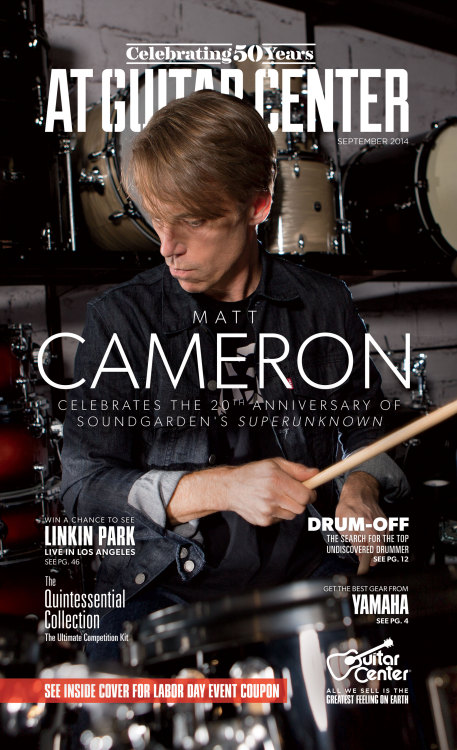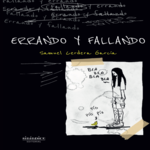J Mascis: «The guitar is very loose as a tool»

Sacado de // From –> http://www.vice.com/
Este año está siendo muy movido para J Mascis, cuyo nuevo disco en solitario, Tied to a Star, vio la luz el día 25 de agosto de la mano del sello Sub Pop Records. Después de la publicación de The Golden Age of Glitter, de Sweet Apple, y el LP de Heavy Blanket, In a Dutch Haze, en colaboración con Earthless, Tied to a Star constituye el disco más íntimo y personal de J de este año, tomando el relevo de su otra producción en solitario, Several Shades of Why (2011). El disco está caracterizado -como sugiere el propio título- por una textura casi espacial, sin excesos de reverberación, en la que sus diez temas fluyen con facilidad durante 41 modestos minutos. A diferencia de Several Shades of Why, en el que J contó con ocho colaboraciones, el nuevo LP es el resultado del esfuerzo en solitario del artista. Pese a su reputación de ser parco en palabras y de conceder entrevistas de lo más incómodas, quisimos entrevistar a J –a riesgo de acabar engrosando la lista de conversaciones incómodas con J- para hablar con él sobre instrumentos musicales, el hardcore punk y su faceta de actor de poca monta.
Noisey: En otras entrevistas, has afirmado que “la guitarra es muy floja como instrumento” y que la “única forma de hacer que sea medianamente soportable” es tocándola con el volumen muy alto. ¿Sigues opinando lo mismo o estás empezando a apreciarla más?
J Mascis: Eh, no. Sigo pensando lo mismo.
Pero tu disco en solitario es esencialmente acústico. ¿Cómo sobrellevas ese sentimiento hacia lo acústico cuando no puedes tocar de forma tan extrema?
Sí, bueno, supongo que eso es otra cosa. No pienso en ello de la misma forma. También me gusta la música acústica.
¿También crees que la música acústica es floja?
Desde luego.
Respecto a las actuaciones en directo, ¿cómo te sientes con tu trabajo en solitario? Con lo que has dicho sobre el volumen, me da la sensación de que no disfrutarás mucho haciendo conciertos en solitario.
No, prefiero tocar en grupo. Es mucho más duro tocar solo porque no puedes hacer tanto jaleo y solo tú eres el responsable de entretener a todo el mundo.
Se te suele identificar con la guitarra, si bien has dicho que te gusta más la batería. ¿Sigue siendo así o ha empezado a gustarte la guitarra?
Sí, supongo que ahora me gusta más la guitarra.
¿Ahora prefieres la guitarra? ¿Cuándo crees que eso puede…
[Interrupción] No, no me gusta más. Me gusta más de lo que me gustaba, pero la batería es mucho más divertida de tocar.
¿Te sientes limitado con la batería?
No. [Pausa] ¿Qué quieres decir?
He hablado con unos cuantos baterías que también tocan la guitarra y muchas veces me dicen que tienen más sensación de libertad tocando la guitarra.
Ah, no. Yo toco la batería un poco de la misma forma en que toco los punteos de guitarra. Como si fueran “punteos de batería”. No me gusta cargar con la responsabilidad de mantener el ritmo. Prefiero tocar con un buen guitarrista o bajista que sepa hacerlo. No me gusta ser responsable de eso.
Si queréis leer más de la entrevista, pasaros por: http://www.vice.com/es/read/j-mascis-tied-to-a-star-254?utm_source=vicefbes
IN ENGLISH
This year has been very busy for J Mascis, whose new solo album, Tied to a Star, was released on August 25 with Sub Pop Records. After the publication of The Golden Age of Glitter, Sweet Apple, and the Heavy Blanket’s LP , In a Dutch Haze, in collaboration with Earthless, Tied to a Star is the most personal and intimate album of J this year, taking over his other solo production, Several Shades of Why (2011). The album is characterized, as the title suggests itself, by an spatial texture, without excessive reverberation in his ten songs, that flow easily during 41 minutes. Unlike Several Shades of Why, which J had eight collaborations, the new LP is the result of the artist’s solo effort. Despite its reputation for being taciturn and giving uncomfortable interviews, we wanted to interview J-at the risk of ending added to the list of uncomfortable conversations with J, to talk with him about musical instruments, hardcore punk and his role as time actor.
Noisey: In other interviews, you’ve said that guitar is very loose as a tool and that the «only way to make it halfway bearable» is touching it in a high volume. You still think the same or are you starting to appreciate it more?
J Mascis: Uh, no. I still think the same.
But your solo album is essentially acoustic. How do you endure this feeling to the acoustic when you can not touch such as extreme?
Yeah, well, I guess that’s another thing. I dont think of it in the same way. I also like acoustic music.
Do you also think that acoustic music is loose?
Of Course.
Regarding live performances, how do you feel about your solo work? With what you said about the volume, I get that you dont like do solo concerts.
No, I prefer playing in bands. It is much harder to play solo because you can not make the same noise, and also you are responsible for entertaining everyone.
You are identified with guitar, and you have mentioned that you like most drums. Is that still the case or you like now more the guitar?
Yeah, I guess I now prefer the guitar.
Now you prefer the guitar? When do you think this can …
[Interruption] No, I do not like most. I like more of what I liked, but drums is much more fun to play.
Do you feel limited with the drums?
No. [Pause] What do you mean?
I’ve talked to a few batteries that also play the guitar and often tell me that they have more sense of freedom playing guitar.
Ah, no. I play drums a bit of the way I play the guitar riffs. As if they were «drum taps». I do not like to bear the responsibility of keeping up. I prefer to play with a good guitar or bass player who knows how. I hate to be responsible for that.
If you want to read the whole interview -in spanish- –> http://www.vice.com/es/read/j-mascis-tied-to-a-star-254?utm_source=vicefbes





